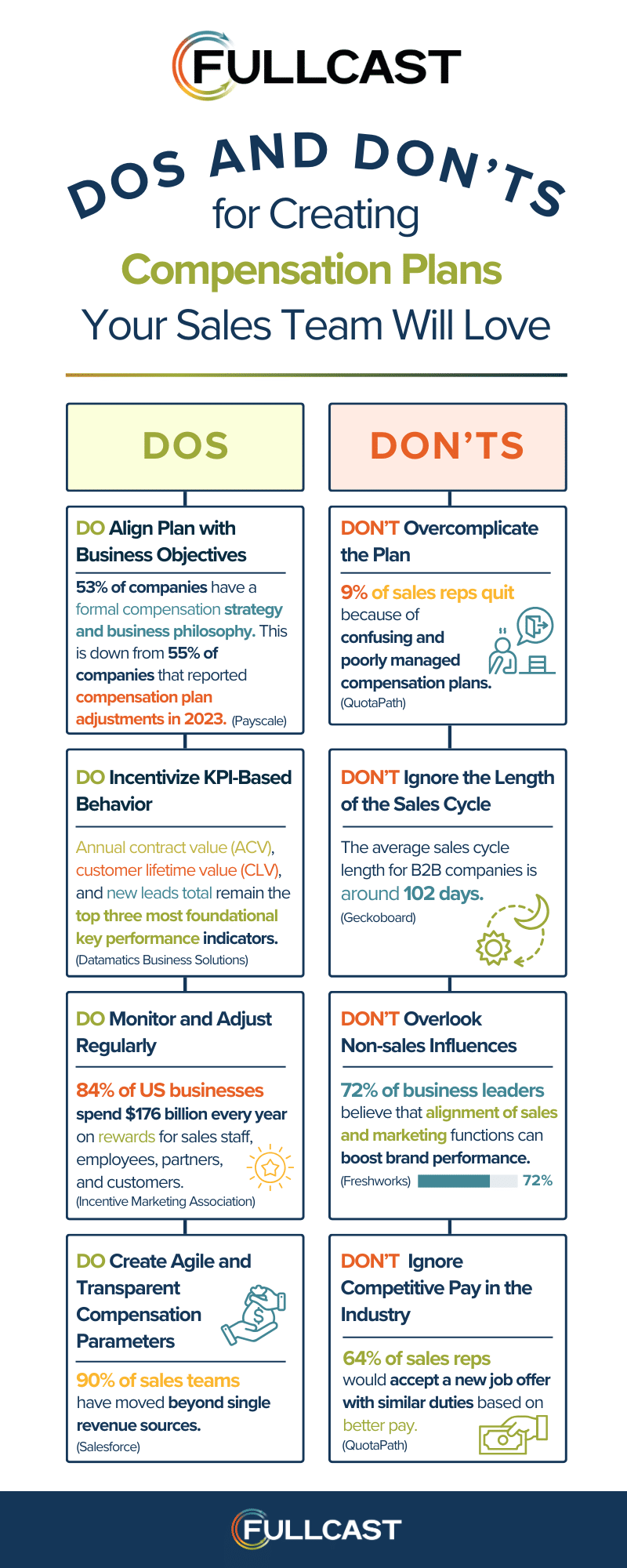Creating a compensation plan that truly motivates your team and drives business success is no small feat. While it might seem straightforward at first, there are several common pitfalls that companies often stumble into along the way.
Don’t Dos
Whether it’s overlooking the importance of alignment with business goals, overcomplicating the structure, or failing to consider the long-term impact on employee engagement, these mistakes can undermine the effectiveness of your compensation strategy.
DON’T Overcomplicate the Plan
9% of sales reps quit because of confusing and poorly managed compensation plans. (Source: QuotaPath)
DON’T Ignore the Length of the Sales Cycle
The average sales cycle length for B2B companies is around 102 days. (Source: Geckoboard)
DON’T Overlook Non-Ssales Influences
72% of business leaders believe that alignment of sales and marketing functions can boost brand performance. (Source: Freshworks)
DON’T Ignore Competitive Pay in the Industry
64% of sales reps would accept a new job offer with similar duties based on better pay. (Source: Salesforce)
Do Dos
Successful compensation plans share several key characteristics that make them effective in motivating sales teams, aligning with company goals, and driving desired outcomes. Here are the common traits:
DO Align Plan with Business Objectives
53% of companies have a formal compensation strategy and business philosophy. This is down from 55% of companies that reported compensation plan adjustments in 2023. (Source: Payscale)
DO Incentivize KPI-bBased Behavior
Annual contract value (ACV), customer lifetime value (CLV), and new leads total remain the top three most foundational key performance indicators. (Source: Datamatics Business Solutions)
DO Monitor and Adjust Regularly
84% of US businesses spend $176 billion every year on rewards for sales staff, employees, partners, and customers. (Source: Incentive Marketing Association)
DO Create Agile and Transparent Compensation Parameters
90% of sales teams have moved beyond single revenue sources. (Source: Salesforce)
Remember, a great compensation plan is not just about numbers—it’s about understanding what motivates your team and supporting them in ways that contribute to both their success and the success of your business. A thoughtful approach to an effective compensation plan will lead to a more committed, high-performing team, effective Go-to-Market strategies, and a stronger bottom line.












